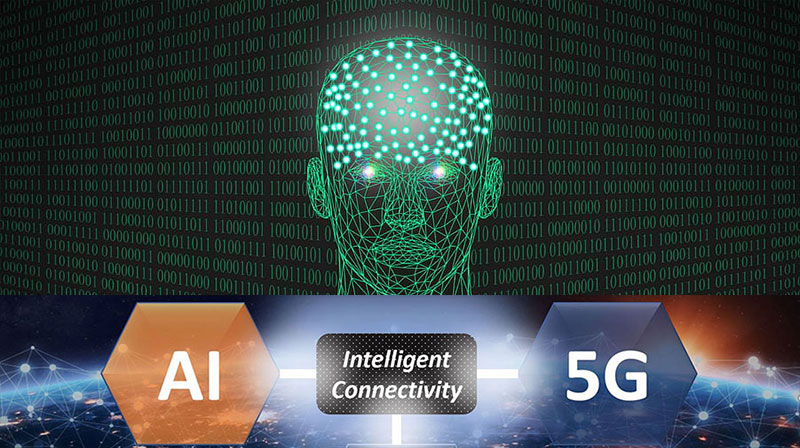The combination of artificial intelligence (AI) and IoT with 5G wireless networks is opening new horizons on the planet, and even in outer space.
Read more How 5G Will Make Wearables More Advanced and Futuristic
AI and 5G are two of the most disruptive technologies we’ve seen in decades. While each is individually transforming various industries, their combined power will truly revolutionize everything.
“5G will cause a proliferation in sensors all around us, and each one of those sensors is a new input available to create better models,” Jake Moskowitz, Head of the Emodo Institute at Ericsson Emodo told Forbes. “Many of these 5G sensors will directly enable vast data aggregation for remote monitoring and immediate reaction. In some cases, there will be opportunities to use those sensors as AI inputs. In other cases, there will be new AI efforts that require the distribution of new sensors.”
When compared with 4G, 5G technology provides very high data rates (several gigabits per second) and low rates of latency. 5G technology is designed to enhance connection between devices and speed up wireless applications. This technology will revolutionize wireless infrastructure for the service providers.
Applying artificial intelligence to 5G network will lead to more efficient wireless communications, longer battery life, and enhanced user experiences.

AI will be present in other aspects of 5G as well. While AI already is playing an important role in our daily interactions with our cell phones, it will bring major changes in how we use voice assistants such as Alexa, Siri, and Google Assistant.
Using 5G, industries including manufacturing, logistics and supply chain, construction, and warehousing that manufacture and do their business globally may be able to compete with countries that offer lower-paid labor rates, suggests Rui Inacio, head of consultancy and solutions at Vilicom, an IT services management firm, in an interview in Silicon. “This means that developed countries affected by the offshoring advent of the 1990s and 2000s can retain a competitive position,” he said.
Read more FDA is Backing the Use of Artificial Intelligence in Telemedicine
There are numerous candidates for 5G applications and it is hard to predict how it’ll impact industries. As we’ve seen before, the applications that are expected to make a huge change at an early stage aren’t always successful.












